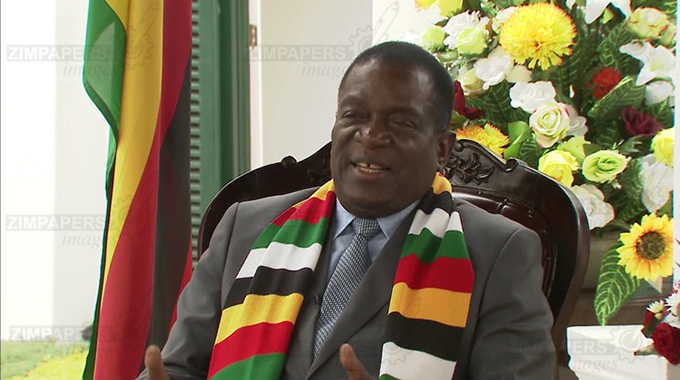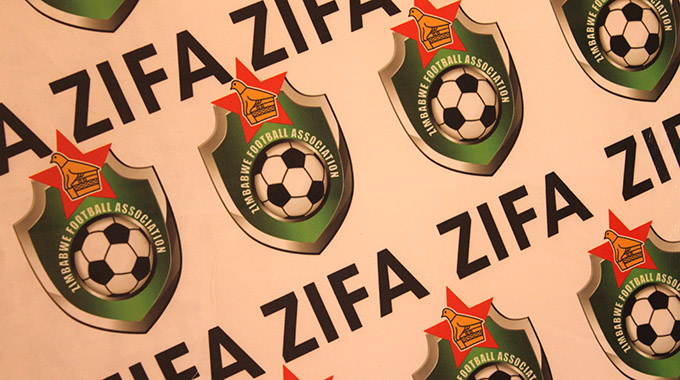Many doors opened for us at TICAD: President

President Mnangagwa this week attended the high-level Tokyo International Conference on African Development (TICAD) Summit in Yokohama, Japan which ended yesterday. Just before the end of the three-day summit, President Mnangagwa (ED) spoke to Zimbabwean journalists in Japan to unpack the outcomes and benefits of TICAD.
Below are excerpts of the President’s interview with the journalists.
Question: The three days have been hectic, briefly put us into the picture of what transpired during TICAD?
ED: It’s very difficult to recount every event that has happened.
There were so many events that were lined up. Besides the normal business of TICAD, there have been a lot of side meetings that we held with other Heads of States from Africa, but more importantly with Japan itself.
This morning (Friday) I had a very important meeting with the Prime Minister of Japan himself, Prime Minister Abe, and in the process we shared our views on cooperation.
We discussed economic and trade cooperation between Zimbabwe and Japan, with the interest that Japan has and is eager to do their best to support the recovery of our economy.
They are well-informed about the situation in our country and they have given us several grants to assist us in several areas, in particular in the agriculture sector.
To mention a few, the day I left Zimbabwe for Japan, I did the groundbreaking in Chirundu, where Japan is giving us a grant to deal with the hazardous area of the Zambezi escarpment.
It is a Japanese company that is doing that, and that is phase one. Phase two will deal with the remaining portion of that same road.
We have discussed again with the Prime Minister the possibility of Japan financing the ring road around the City of Harare, which is a US$110 million project.
We also discussed the issue of rehabilitating Birchenough Bridge that spans the Save River and several other irrigation projects.
As I go back home, I am going to commission an irrigation project on the eastern part of the country, the Nyakomba Irrigation Scheme in Nyanga, which is in its second phase and has been financed by Japan. So you can see how much they are assisting Zimbabwe.
During my visit here, Japan has also undertaken to modernise and refurbish the paediatric department at Harare Hospital.
It will cost some money, but they agreed that they will take that and proceed.
There are several other projects that they have said they will look at. In the area of ICT and technologies, they have said Japan is looking at modernising our agriculture and mining sectors, and developing our infrastructure.
Apparently, Japan is well-informed about the areas of concern in Zimbabwe.
Q: Are you happy that the meetings you have had at TICAD have been fruitful?
ED: Yes, just now I have finished discussions with JICA, which is one of the companies responsible for identifying and recommending financing by Japan.
They are going to support us with 150 000 tonnes of grain through this organisation I have mentioned. This is quite a lot and it will do a lot in our situation.
So you can see that Japan is eager to develop relations with Zimbabwe.
Q: On the sidelines, you also had other meetings with other African leaders such as President Paul Kagame. What came out of that?
ED: With my brother Paul Kagame, it is a continuous exchange of views with regards to our respective situations in Africa.
We were discussing strategies to deal with the question of sanctions.
At the last Sadc meeting in Dar es Salaam, Sadc made a resolution that we must together appeal to AU, so that when AU goes to the United Nations, they speak about the removal of sanctions.
Sadc Secretariat must also again appeal for the removal of sanctions.
But individual African countries such as Rwanda have also been doing their own lobbying. They did lobby for Zimbabwe during the G7 meeting.
President Kagame attended the G7 meeting and he was able to meet with the G7 leaders and he pleaded with them over removal of sanctions on Zimbabwe.
These are the areas we were discussing and the possibilities of success and attitudes of every single leader in G7 and how they look at Zimbabwe.
Q: Yesterday you superintended over the signing ceremonies between companies attending TICAD and the Japanese Government. How did it come about?
ED: It was a common agreement and understanding by Japan and Africa that one of the African leaders should superintendent over all the protocols and agreements with Japan and the rest of Africa.
They settled on Zimbabwe and I think it was a great honour.
Zimbabwe was given that prime position to superintend and oversee the signing as well as the acknowledgement of agreements from Cape to Cairo.
Q: That was quite a celebration for Zimbabwe, you reckon?
ED: In our view, it was a great honour for Zimbabwe to preside over that function.
Q: As you leave for home, what is your message to the doubting Thomases that a lot was achieved and this was not just another jaunt?
ED: I think it was critically important that Zimbabwe participated at TICAD.
We are going to benefit from TICAD (financially). The initial amount that has been put on the table by Japan is about US$20 billion and there is a possibility of it being increased.
It is up to the individual member states of the AU to come up with projects that they will submit for funding.
For Zimbabwe, we already have promises of support in various areas.
In particular, in my discussions with the Prime Minister of Japan, (Shinzo Abe), he said Japan is willing to look at supporting us in the modernisation and mechanisation of our agriculture and development of our infrastructure.
He also said it is necessary that we develop our linkage to the outside world through modernising our railways.
So all these things couldn’t have come to us if we had not come here.
But because of our being here, we have been able to have many doors opened for us to exploit and take advantage of.
Q: Tell us about your meeting with the Emperor of Japan?
ED: Zimbabwe had Emperor Munhumutapa, so it’s not a novel thing to meet an emperor (Naruhito) because we used to have our own.
I am going to congratulate the new emperor who has taken over after his father abdicated. So I am going to pay my courtesy and congratulate him.
Transcription by Kuda Bwititi In Yokohama










Comments